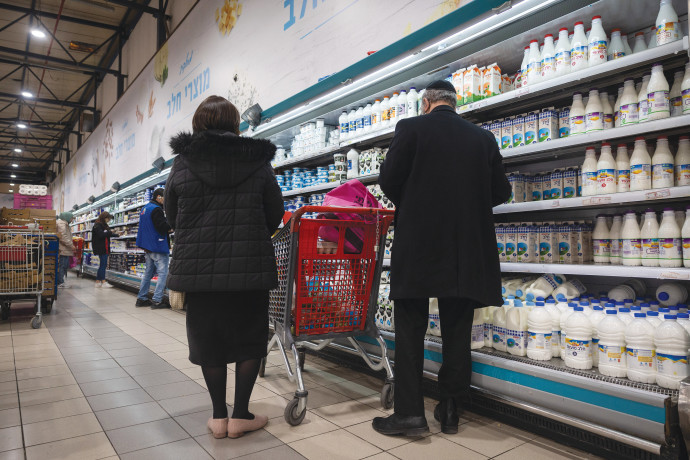Tnuva intends to increase prices of dairy products that are not government controlled by an average of 4.7%, with a maximum increase of 4.9%, Calcalist reported Monday. The price increase will take effect on November 22, the report said.
Among the giant food producer’s dairy products whose prices will increase are cheese, butter, milk-based drinks and yogurts. Although they do not contain milk, the price of Tnuva’s milk substitutes will also increase, including soy drinks, oat drinks, tofu, pareve cheese and pareve yogurt.
This is a proportional increase in light of the significant price increase in raw materials, primarily milk, which has increased 24% since 2019, Tnuva said.
The price of raw milk, which is a central component of the production cost of dairy products (about 50%), is set once a quarter by the state. As of October 1, it stood at a record price of about NIS 2.465 per liter. Its price has risen NIS 0.49 over the past three years.
In light of the increase in the price of raw milk and other raw materials, the joint price committee of the Finance and Agriculture ministries recommended in March to update the prices of government-controlled milk products by 6.49%.

Tnuva decided not to raise prices for customers in the retail and institutional markets on a number of products, including its BIO yogurt, cottage cheese, low-lactose 2% milk, lactose-free 3% milk, Tnuva 4% yogurt and Tnuva Alternative one-liter soy drink.
Shufersal refuses to sell price-increased products
Supermarket giant Shufersal, which has positioned itself as being at the forefront of the fight against the rising cost of products, said it does not intend to approve Tnuva’s price increases this time either. Tnuva products have not been sold on the shelves of Israel’s largest food retailer since last month, after the dairy producer, which is owned by Bright Dairy International Investment Co., Ltd., raised its prices.
Since the wave of price increases began in the summer, Shufersal said it would not approve them, and two weeks ago, it hung signs in its supermarket branches, informing customers of the possibility of shortages in various products, Globes reported.
“As Shufersal has made clear in recent weeks, raising prices for the Israeli consumer is out of the question at this time,” Shufersal said.
